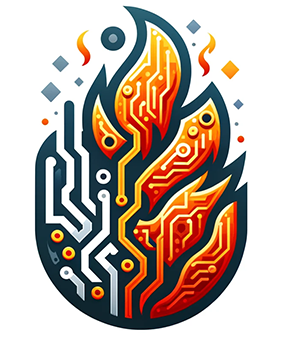The Home Server Tool Unraid: Installation and Benefits
The world of home servers has seen significant growth in recent years, offering individuals and small businesses an affordable and flexible solution for data storage and management. Among the various options available, Unraid has emerged as a popular choice for its ease of use, versatility, and extensive community support.
What is Unraid?
Unraid is an operating system that allows you to turn your computer into a powerful and customizable home server. It provides a range of features such as file sharing, media streaming, virtualization, and data protection, making it an all-in-one solution for both beginners and advanced users.
Unlike traditional RAID (Redundant Array of Independent Disks) systems, Unraid uses a unique parity storage technology that allows users to mix and match hard drives of different sizes and capacities. This means you can start with a single drive and expand your storage capacity over time without losing any data.
Installing Unraid
Installing Unraid is a straightforward process. Here’s a step-by-step guide to get you started:
Step 1: Hardware Requirements
Before installing Unraid, make sure your system meets the minimum hardware requirements. These include:
- A 64-bit capable processor
- At least 2GB of RAM
- A USB flash drive (8GB or larger) for the Unraid OS
- SATA or SAS hard drives for storage
Step 2: Downloading Unraid
Visit the official Unraid website and download the latest version of the software. Unraid offers a 30-day free trial, so you can test it out before committing to a license.
Step 3: Creating a Bootable USB Drive
Using a utility like Rufus (for Windows) or Etcher (for macOS and Linux), create a bootable USB drive with the Unraid OS. Make sure to select the correct USB device and Unraid ISO file during the process.
Step 4: Booting from USB
Insert the bootable USB drive into your server, restart the system, and enter the BIOS settings. Change the boot order to prioritize the USB drive, save the changes, and exit the BIOS. Your system should now boot from the USB drive and load the Unraid OS.
Step 5: Initial Configuration
Once the Unraid OS is loaded, you’ll be prompted to configure your server. This includes setting up a network connection, assigning storage devices, and creating a secure login. Follow the on-screen instructions to complete the initial configuration.
Once the setup is complete, you can access the Unraid web interface from any device on your network by entering the assigned IP address in a web browser.
Benefits of Unraid
Unraid offers several benefits that make it a popular choice for home server enthusiasts:
1. Ease of Use
Unraid is designed with simplicity and user-friendliness in mind. The web-based interface provides an intuitive way to manage your server, allowing you to easily add or remove drives, create custom shares, and monitor system health.
2. Data Protection
Unraid’s unique parity storage technology protects your data from drive failures. By calculating parity data and distributing it across different drives, Unraid ensures that even if a drive fails, your data remains intact. You can even add multiple parity drives for additional protection.
3. Scalability
Unraid allows you to start with a single drive and add more as your storage needs grow. Unlike traditional RAID configurations that require all drives to be of the same size, Unraid lets you use drives of different capacities, making it easy to expand your storage without any downtime.
4. Virtualization
Unraid supports virtualization, allowing you to run multiple virtual machines (VMs) on your server. Whether you need a dedicated media server, a gaming rig, or a development environment, Unraid makes it easy to create and manage VMs using popular virtualization tools like VMware and QEMU.
5. Plugin Ecosystem
Unraid has a vibrant community that has developed a wide range of plugins and apps to extend its functionality. These plugins include media servers like Plex and Emby, download managers like Sonarr and Radarr, and backup solutions like Duplicati and UrBackup.
6. Docker Integration
Unraid has built-in support for Docker, allowing you to run containerized applications with ease. Docker provides a lightweight and isolated environment for running applications, making deployment and maintenance hassle-free. With the help of community-supported templates, you can quickly set up popular applications like WordPress, Home Assistant, and Nextcloud.
Recommended Apps for Unraid
Here are some popular apps that you should consider using with Unraid:
1. Plex
Plex is a media server app that allows you to organize and stream your media collection to various devices. With Unraid, you can easily set up a Plex server to access your movies, TV shows, music, and photos from anywhere.
2. Sonarr and Radarr
Sonarr and Radarr are automated downloaders for TV shows and movies, respectively. These apps can automatically search for and download your favorite shows and movies, keeping your media library up to date without any manual intervention.
3. Nextcloud
Nextcloud is a self-hosted file synchronization and sharing solution. With Unraid, you can set up Nextcloud to have full control over your files and data, ensuring privacy and security.
4. Home Assistant
Home Assistant is an open-source home automation platform that allows you to control and automate various smart devices in your home. With Unraid, you can easily run Home Assistant as a Docker container and manage your smart home from a centralized location.
Conclusion
Unraid is a powerful and flexible home server tool that offers ease of use, data protection, scalability, and a wide range of applications through its plugin ecosystem. Whether you’re new to home servers or looking to upgrade your existing setup, Unraid provides an all-in-one solution that caters to both beginners and advanced users.
By following the installation process and utilizing recommended apps, you can create a customized and efficient home server that meets your specific needs. So go ahead, give Unraid a try, and unlock the full potential of your home server!

